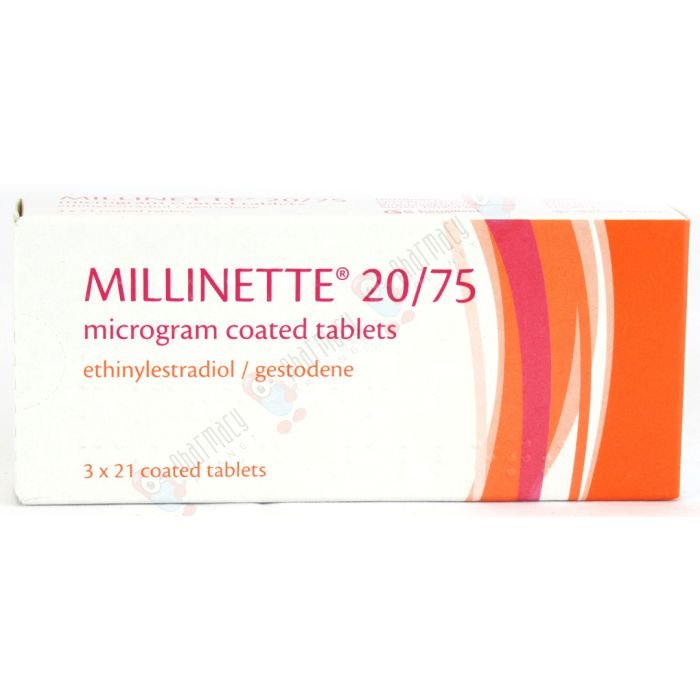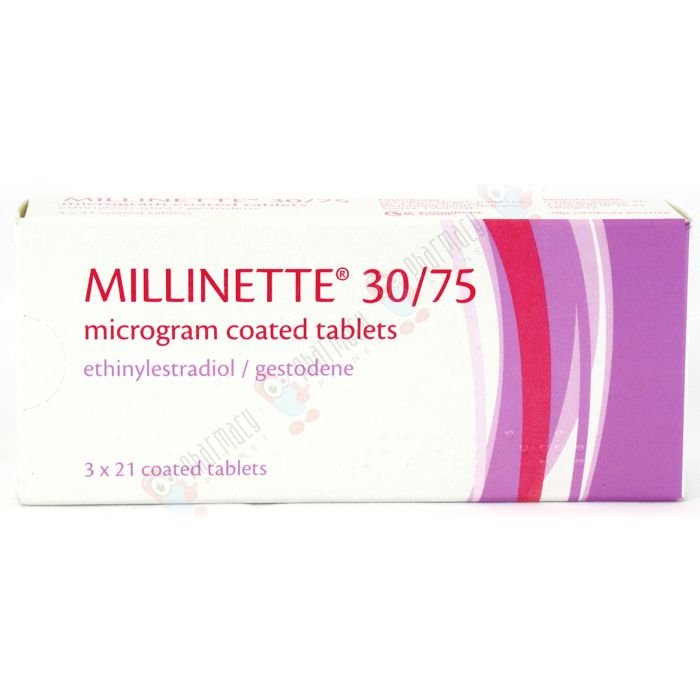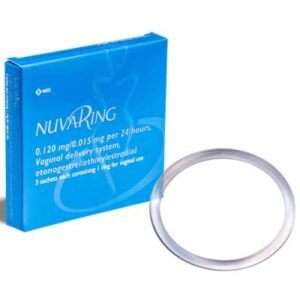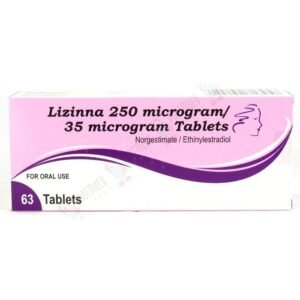What Is Millinette?
Millinette 20/75 is low dose combined contraceptive pill, commonly known as birth control pill or simply ‘the pill’. Millinette is an oral contraceptive that prevents ovulation i.e. release of the egg from the ovary each month. It also alters the endometrium (lining of the uterus) and the fluid of the cervix, which makes it harder for a sperm to enter the womb.
It is important to remember that oral combined contraceptives like Millinette do not protect against Sexually Transmitted Diseases (STDs). Millinette can be used as an emergency pill.
How Does Millinette Work?
Millinette contains two hormones that prevent the release of an egg from the ovary and make the mucous of the cervix thick enough to prevent sperm from reaching an egg. These hormones also make the implantation of a fertilized egg to the wall of the uterus extremely difficult.
The two hormones used in this combined oral contraceptive are estrogen, ethinyl estradiol and progestogen gestodene. These two hormones prevent a pregnancy just as your natural hormones would prevent you from conceiving again, when you are already pregnant.
What Are The Benefits Of Taking Millinette?
Birth control pills like Millinette are not only used for contraception. Doctors may also prescribe these pills for menstrual problems. Some benefits of taking Millinette contraceptive pills regularly are:
- It prevents pregnancy.
- It makes periods regular, lighter and less painful.
- It reduces the intensity of menstrual cramps.
- It is one of the best reversible methods of contraception if used correctly.
How Do I Take Millinette?
Take your contraction medication as prescribed by your physician, pharmacist or your family planning nurse.
- Start to take your pills on the first day of your period. It is better to take your pill as soon as you start bleeding.
- Take your pill everyday on the same time for the next 21 days.
- After taking all 21 pills, the next seven days are pill free.
- You will experience period like bleeding in the seven pill free days.
- This bleeding is usually different from your normal periods. The bleeding is more likely to be lighter and less painful than your normal periods.
- No contraception is required in your pill free days, if you have taken all of your 21 pills correctly and start your next pack on time.
Precautions
- Make sure your physician knows your medical history. Especially if you have (or ever had) any heart, liver or kidney problems or blood disorders.
- Consult your doctor before using Millinette if you have diabetes, hypertension or high levels of fat in your blood as these conditions increase the risks of blood clot formation (thrombosis).
- Before using Millinette, make sure you are not allergic to any ingredient present in these pills.
After starting Millinette, make sure that you take your 21-day pills regularly. Here is a list of things that you should be careful about after starting Millinette contraceptive pills:
- If you start taking your pills on day 2-5 of your periods, you will have to take extra contraceptive precautions for the next seven days.
- If spotting or bleeding occurs within the 21 pill days, consult your doctor immediately as it may mean that your pill is not fully working as a contraceptive.
What to Do If You Forget To Take Your Pill?
- If you are less than 12 hours late in taking your pill, take your pill as soon as you remember and continue taking rest of your pills on due time. In doing so, you will be protected and will not require any extra contraceptives.
- If you are more than 12 hours late in taking your pill, take it as soon as you remember, even if it means taking two pills in a single day and continue taking rest of your pills as per schedule. However, you will have to take extra contraceptive precautions for the next seven days.
Side Effects of Millinette
Combined oral contraceptives like Millinette increase the risks of thrombosis (formation of a blood clot). A blood can form anywhere in the arteries or veins. If it forms in the vein of leg or foot, it is called deep vein thrombosis. If it forms in a vein of the lungs, it is called pulmonary embolism and if it forms in the vein of an eye, it is called retinal vein thrombosis etc.
Other side effects that may occur with the administration of Millinette are mild. Some of the common side effects of Millinette are headaches, irregular bleeding and spotting between periods, nausea, upper abdominal pain, acne and breast tenderness. If you experience any of these side effects or others that are not mentioned here, contact your doctor immediately.
Millinette Indications
Birth control pills help to:
- Reduce cramps and pain during periods.
- Make periods more regular and pain free.
- Reduce acne and symptoms of PMS
- Prevent unwanted pregnancy.






